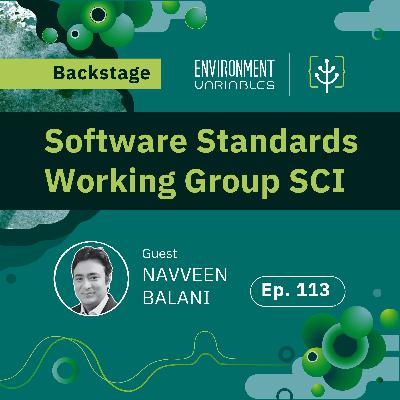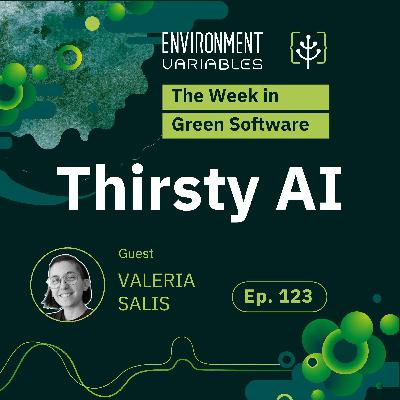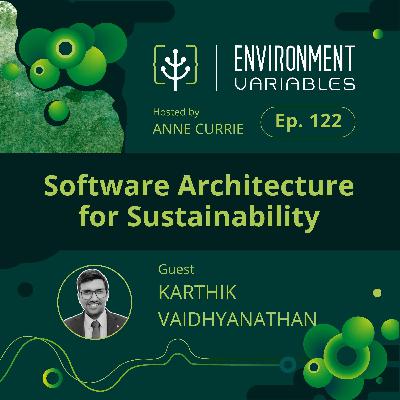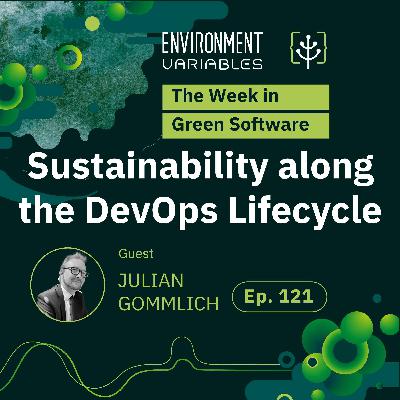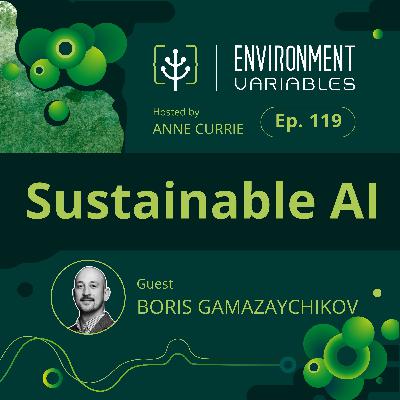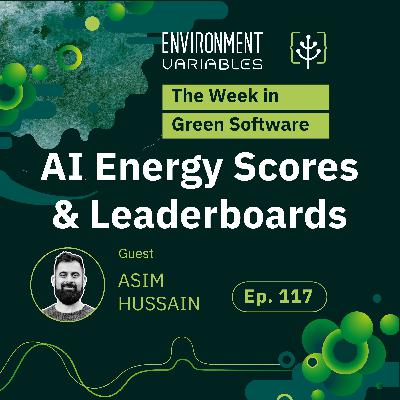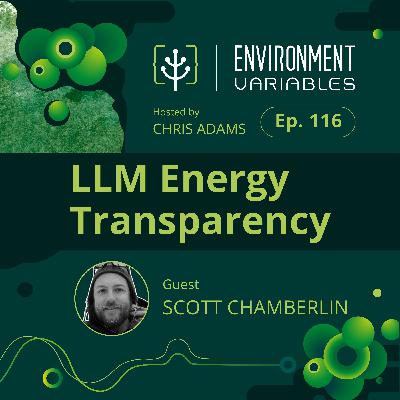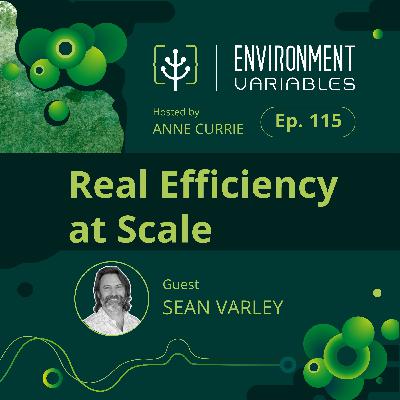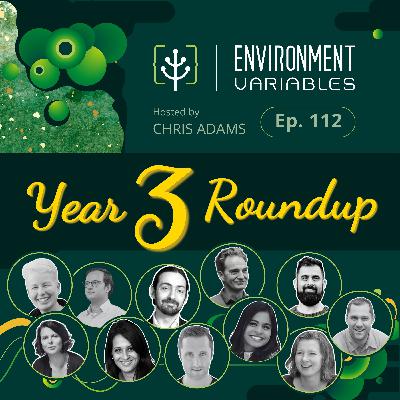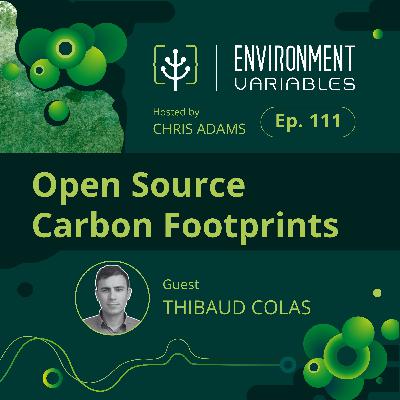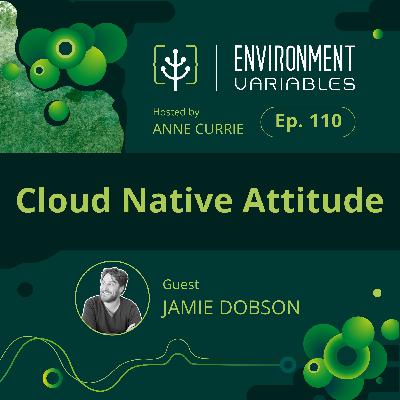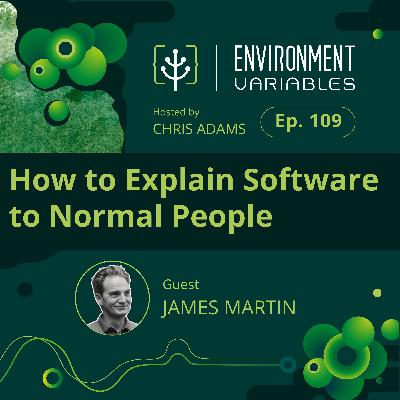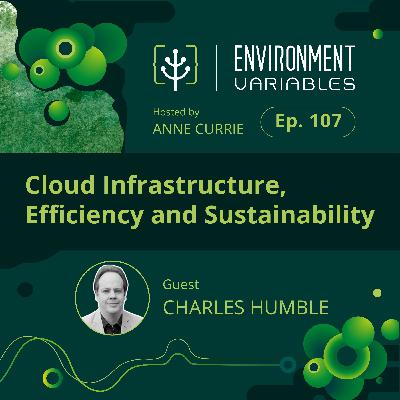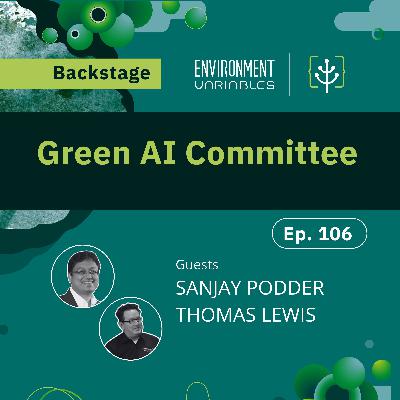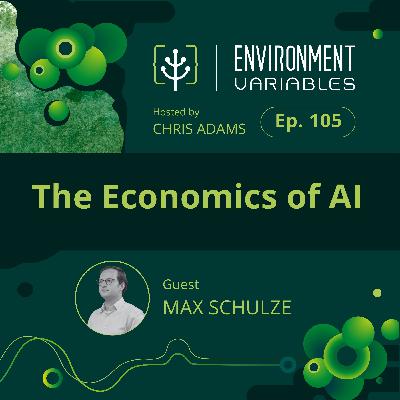Backstage: Software Standards Working Group SCI
Update: 2025-07-03
Description
In this Backstage episode of Environment Variables, podcast producer Chris Skipper highlights the Green Software Foundation’s Software Standards Working Group—chaired by Henry Richardson (WattTime) and Navveen Balani (Accenture). This group is central to shaping global benchmarks for sustainable software. Key initiatives discussed include the Software Carbon Intensity (SCI) Specification, its extensions for AI and the web, the Real-Time Energy and Carbon Standard for cloud providers, the SCI Guide, and the TOSS framework. Together, these tools aim to drive emissions reduction through interoperable, transparent, and globally applicable standards.
Learn more about our people:
Find out more about the GSF:
Resources:
- Software Standards Working Group [00:18 ]
- GSF Directory | Projects [01:06 ]
- https://wiki.greensoftware.foundation/proj-mycelium [03:57 ]
- Software Carbon Intensity (SCI) Specification | GSF [04:18 ]
- Impact Framework [08:09 ]
- Carbon Aware SDK [09:11 ]
- Green Software Patterns [09:32 ]
- Awesome Green Software | GitHub [10:11 ]
- Software Carbon Intensity for AI [10:58 ]
- Software Carbon Intensity for Web [12:24 ]
Events:
- Developer Week 2025 (July 3 · Mannheim) [13:20 ]
- Green IO Munich (July 3-4) [13:35 ]
- EVOLVE [25]: Shaping Tomorrow (July 4 · Brighton) [13:51 ]
- Grid-Aware Websites (July 6 at 7:00 pm CEST · Amsterdam) [14:03 ]
- Master JobRunr v8: A Live-Coding Webinar (July 6 · Virtual) [14:20 ]
- Blue Angle for Software / Carbon Aware Computing (July 9 at 6:30 pm CEST · Berlin) [14:30 ]
- Shaping Progress Responsibly—AI and Sustainability (July 10 at 6:00 pm CEST · Frankfurt am Main) [14:41 ]
- Green Data Center for Green Software (July 15 at 6:30 pm CEST · Hybrid · Karlsruhe) [14:52 ]
If you enjoyed this episode then please either:
- Follow, rate, and review on Apple Podcasts
- Follow and rate on Spotify
- Watch our videos on The Green Software Foundation YouTube Channel!
Connect with us on Twitter, Github and LinkedIn!
TRANSCRIPT BELOW:
Chris Skipper: Welcome to Backstage, the behind the scenes series from Environment Variables, where we take a look at the Green Software Foundation's key initiatives and working groups. I'm the producer and host, Chris Skipper. Today we are shining a spotlight on the Green Software Foundation's Software Standards working group. This group plays a critical role in shaping the specifications and benchmarks that guide the development of green software.
TRANSCRIPT BELOW:
Chris Skipper: Welcome to Backstage, the behind the scenes series from Environment Variables, where we take a look at the Green Software Foundation's key initiatives and working groups. I'm the producer and host, Chris Skipper. Today we are shining a spotlight on the Green Software Foundation's Software Standards working group. This group plays a critical role in shaping the specifications and benchmarks that guide the development of green software.
Chaired by Henry Richardson, a senior analyst at what time, and Navveen Balani, managing Director and Chief Technologist for Technology Sustainable Innovation at Accenture, the group's mission is to build baseline specifications that can be used across the world, whether you're running systems in a cloud environment in Europe or on the ground in a developing country.
In other words, the Software Standards Working Group is all about creating interoperable, reliable standards, tools that allow us to measure, compare, and improve the sustainability of software in a meaningful way.
Some of the major projects they lead at the Green Software Foundation include the Software Carbon Intensity Specification, or SCI, which defines how to calculate the carbon emissions of software; the SCI for Artificial Intelligence, which extends this framework to cover the unique challenges of measuring emissions from AI workloads; the SCI for Web, which focuses on emissions from websites and front end systems;
the Realtime Energy and Carbon Standard for Cloud Providers, which aims to establish benchmarks for emissions data and cloud platforms;
the SCI Guide, which helps organizations navigate energy carbon intensity and embodied emissions methodologies,
and the Transforming Organizations for Sustainable Software, or TOSS framework, which offers a broader blueprint for integrating sustainability across business and development processes.
Together these initiatives support the foundation's broader mission to reduce the total change in global carbon emissions associated with software by prioritizing abatement over offsetting, and building trust through open, transparent, and inclusive standards. Now for some recent updates from the working group.
Earlier this year, the group made a big move by bringing the SCI for AI project directly into its core focus. As the world turns more and more to artificial intelligence, figuring out how to measure AI's energy use and emissions footprint is becoming a priority. That's why they've committed to developing a baseline SCI specification for AI over the next few months, drawing on insights from a recent Green AI committee workshop and collaborating closely with experts across the space.
There's also growing interest in extending the SCI framework beyond carbon. In a recent meeting, the group discussed the potential for creating a software water intensity metric, a way to track water usage associated with digital infrastructure, especially data centers. While that comes with some challenges, including limited data access from cloud providers, it reflects the working group's commitment to looking at sustainability from multiple environmental angles.
To help shape these priorities,
they've also launched a survey across the foundation, which collected feedback from members. Should the group focus more on Web and mobile technologies, which represent a huge slice of the developer ecosystem? Should they start exploring procurement and circularity? what about realtime cloud data or hardware software integration?
The survey aims to get clear answers and direct the group's resources more effectively. The group also saw new projects take shape, like the Immersion Cooling Specifications, designed to optimize cooling systems for data centers, and the Mycelium project, which is creating a standard data model to allow software and infrastructure to better talk to each other, enabling smarter energy aware decisions at runtime.
So that's a brief overview of the software standards working group. A powerhouse behind the standards and specs that are quietly transforming how the world builds software. Now let's explore more of the work that the Software Standards Working Group is doing with the software Carbon Intensity Specification, the SCI. A groundbreaking framework designed to help developers and organizations calculate, understand, and reduce the environmental impact of their software.
The SCI specification offers a standardized methodology for measuring carbon intensity, empowering the tech industry to make more informed decisions in designing and deploying greener software systems. For this part of the podcast, we aim some questions at Navveen Balani from Accenture, one of the co-chairs of the Software Standards working group.
Navveen rather graciously provided us with so
Comments
In Channel

